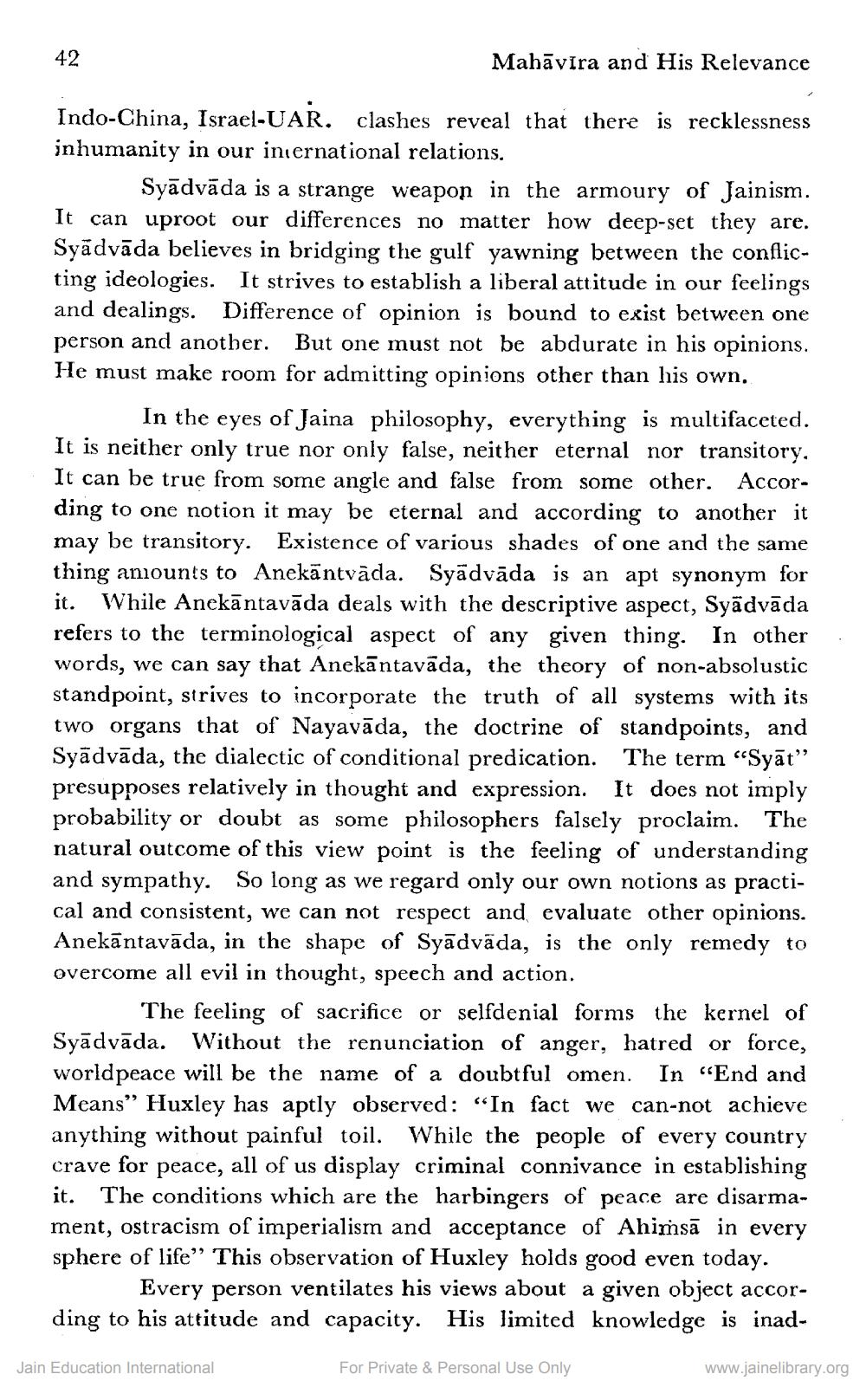________________
42
Mahāvīra and His Relevance
Indo-China, Israel-UAR. clashes reveal that there is recklessness inhumanity in our iniernational relations.
Syādvāda is a strange weapon in the armoury of Jainism. It can uproot our differences no matter how deep-set they are. Syadvāda believes in bridging the gulf yawning between the conflicting ideologies. It strives to establish a liberal attitude in our feelings and dealings. Difference of opinion is bound to exist between one person and another. But one must not be abdurate in his opinions. He must make room for admitting opinions other than his own.
In the eyes of Jaina philosophy, everything is multifaceted. It is neither only true nor only false, neither eternal nor transitory. It can be true from some angle and false from some other. According to one notion it may be eternal and according to another it may be transitory. Existence of various shades of one and the same thing amounts to Anekāntvāda. Syadvāda is an apt synonym for it. While Anekāntavāda deals with the descriptive aspect, Syādvāda refers to the terminological aspect of any given thing. In other words, we can say that Anekāntavāda, the theory of non-absolustic standpoint, strives to incorporate the truth of all systems with its two organs that of Nayavāda, the doctrine of standpoints, and Syädvāda, the dialectic of conditional predication. The term “Syāt” presupposes relatively in thought and expression. It does not imply probability or doubt as some philosophers falsely proclaim. The natural outcome of this view point is the feeling of understanding and sympathy. So long as we regard only our own notions as practical and consistent, we can not respect and evaluate other opinions. Anekāntavāda, in the shape of Syādvāda, is the only remedy to overcome all evil in thought, speech and action.
The feeling of sacrifice or selfdenial forms the kernel of Syādvāda. Without the renunciation of anger, hatred or force, worldpeace will be the name of a doubtful omen. In “End and Means” Huxley has aptly observed: “In fact we can-not achieve anything without painful toil. While the people of every country crave for peace, all of us display criminal connivance in establishing it. The conditions which are the harbingers of peace are disarmament, ostracism of imperialism and acceptance of Ahimsā in every sphere of life” This observation of Huxley holds good even today.
Every person ventilates his views about a given object according to his attitude and capacity. His limited knowledge is inad
Jain Education International
For Private & Personal Use Only
www.jainelibrary.org




